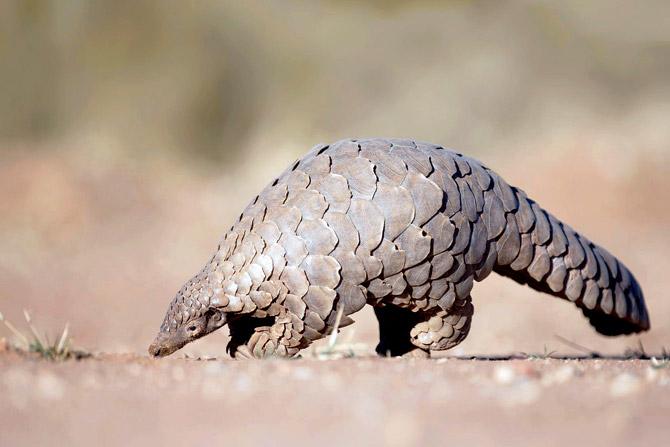In the city for the first time, conservation biologist Dr Samuel Wasser talks of being the Guru of Doo Doo and why illegal pangolin trade is India's next big threat

PIC/Pradeep Dhivar
What does Mumbai feel like when you arrive in the city for the first time? Dr Samuel Wasser sums it up well. "If you ask me tomorrow, I'll have a better feel," he says. One day is never enough; after all, the conservation biologist isn't here on vacation.
ADVERTISEMENT
After participating in a panel discussion at the US Consulate General, he also delivered a lecture at the Bombay Natural History Society yesterday on wildlife conservation. A recipient of the Albert Schweitzer Medal [whose past recipients include Jane Goodall and Rachel Carson], Wasser is also a professor at the University of Washington. And along the way of doing pioneering work of developing non-invasive tools to monitor wildlife over large landscape areas, he's earned a rather funny nickname — the Guru of Doo Doo [or excrement]. "My favourite term... I love it," he laughs, elaborating on how his laboratory was able to acquire DNA, toxins as well as stress, reproductive, and nutritional hormones from scat.
But Wasser is worried about India's future. Having worked with the US Homeland Security investigations focusing on transnational crime, he states that although ivory is moving from Africa to South East Asia, there are some very big players in India who are doing the expediting. "They're organising shipments and figuring out how you get them from A to B without getting got ?, and they're experts at it. They're making huge amount of money and not breaking Indian law. This needs to be figured out," he says, adding how transnational trade needs to taken seriously.

"While your country is very good at worrying about 'your' country, transnational crime goes beyond that. Every country tends to solve their problems but India is particularly good at it. The reason that this is important is because one of the major transnational crimes that hits India is the illegal pangolin trade," Wasser reveals. Pangolins are the most poached animals in the world and the trade, he says, has moved from Asia to Africa, "The problem with pangolins is that they're solitary creatures. I've worked in Africa for 40 years, and I've seen only one. So, when pangolins are going to run out in Africa — and that's happening fast because you're getting shipments of 30,000 — India is going to be the next place," he warns.
To ensure a peaceful co-existence, in cities like Mumbai, that are lined alongside national parks, Wasser advocates for buffer zones. "One of the biggest things that everybody needs is land. So land use policies are critical. Right now, this is a model country for being able to address this problem but the population continues to grow so those things that worked in the past may not work anymore."
Catch up on all the latest Crime, National, International and Hatke news here. Also download the new mid-day Android and iOS apps to get latest updates
 Subscribe today by clicking the link and stay updated with the latest news!" Click here!
Subscribe today by clicking the link and stay updated with the latest news!" Click here!






